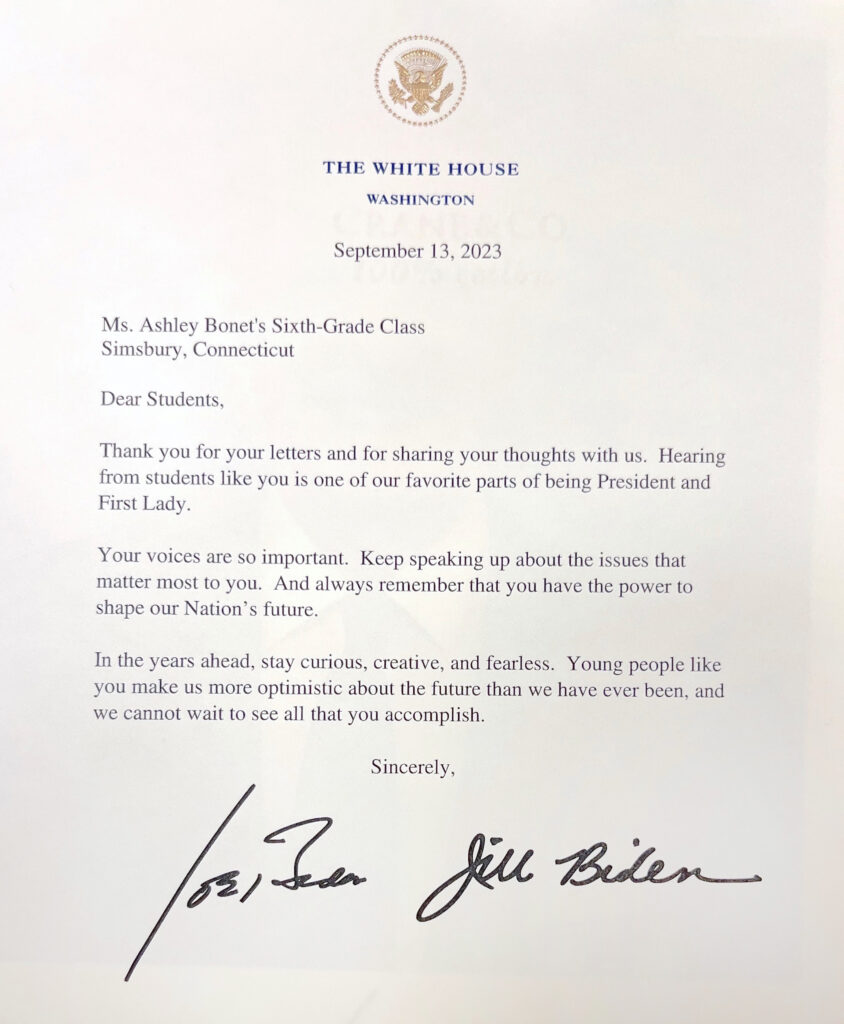News
Walker’s Students Receive Presidential Recognition for Environmental Action
In 2019, the Farmington River faced contamination after a fire broke out at Bradley International Airport, requiring the use of a special foam to extinguish the flames. This foam contained harmful per- and polyfluoroalkyl substances (PFAs), which have since posed a threat to both the environment and public health. PFAs are known for their bioaccumulative properties, leading to their gradual buildup within the river’s ecosystem over time. This not only raises concerns about adverse health effects in people but also disrupts the local ecosystem, including impacts on biodiversity and raising the river’s temperature. After spending last school year learning about local ecology and environmental concerns, Ms. Bonet’s 6th grade STEAM class was tasked with designing a solution that could clean PFA chemicals out of the river.
They used the engineering design process to explore the intricacies of local ecology and environmental issues surrounding the river, conducted extensive research using local and national sources, brainstormed solutions, planned, and created a prototype design. They also engaged in feedback circles to refine their ideas and composed a comprehensive report on their findings. Finally, they were tasked with writing a letter using the knowledge gained over the year. The letter was to serve as a call to action for officials outlining how to maintain a healthy ecosystem and underscored the consequences that arise when ecosystems are disrupted. In their letter, the students described their innovative solutions, explaining how these would not only remove harmful PFAs from the river but also ensure the preservation of biodiversity and ecosystem services vital to the region.
Head of Middle School Isabel Ceballos commended the students for their work: “Girls who attend The Ethel Walker Middle School are not only today’s doers, thinkers, and creators, but they are also today’s movers and shakers! In Ms. Bonet’s STEAM class, girls learn about the world around them, the complexities of current events, and long-term environmental impact. They are immersed in the exploratory learning process and take on the challenge of designing innovative solutions to real world problems. Our students do not have to wait to ‘grow up’ to make change — they are empowered and supported to do it now, because Walker’s girls do!”
Their efforts did not go unnoticed. This week, the President and First Lady responded to their letter, commending the students for their dedication to environmental conservation and encouraging them to remain committed to speaking up about the issues that matter to them. In the wake of this ongoing issue, local health departments have taken regulatory measures to limit fishing in the river and reduce human exposure to PFAs. This collective effort to address the contamination highlights the significance of community engagement and underscores the power of young voices when it comes to environmental protection.

